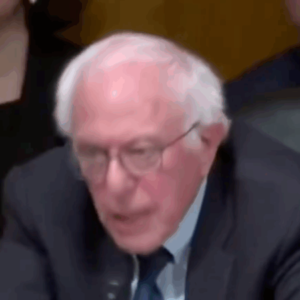The U.S. Supreme Court has handed down a landmark decision that could reshape how veterans’ disability claims are reviewed across the nation. In a 7-2 ruling in Bufkin v. Collins, the Court determined that federal appellate courts are not required to independently reexamine how the Department of Veterans Affairs (VA) applies the long-standing “benefit-of-the-doubt” rule in disability cases. This decision marks a major turning point in veterans’ law, drawing both praise and concern from legal experts, advocacy groups, and veterans’ organizations alike.
At the heart of the case was a seemingly simple but profound question: when a veteran appeals a denial of disability benefits, how deeply should federal courts review the VA’s application of the benefit-of-the-doubt standard? For decades, that rule has been a cornerstone of veterans’ law — a built-in safeguard intended to favor those who served when the evidence surrounding their disabilities is uncertain or incomplete. The rule essentially ensures that when the evidence for and against a claim is evenly balanced, the tie goes to the veteran.
Understanding the Benefit-of-the-Doubt Rule
The benefit-of-the-doubt rule was designed to reflect the reality that many veterans struggle to document service-related injuries or conditions. Records can be lost, memories fade, and evidence from decades past can be difficult or impossible to obtain. Congress created the rule as a humane and practical recognition of those challenges, placing the burden on the government — not the veteran — when uncertainty exists.
In practice, the VA’s adjudicators are supposed to give the veteran every reasonable consideration. However, when a veteran appeals a denial to a higher court, the question becomes whether that same benefit-of-the-doubt analysis should be revisited from scratch. Until now, different lower courts have taken different approaches, sometimes reinterpreting the evidence entirely, sometimes deferring to the VA’s internal findings. The Bufkin v. Collins case brought this long-standing inconsistency directly to the Supreme Court’s attention.
The Case That Sparked the Ruling
Mr. Bufkin, a former Army servicemember, filed for disability benefits related to a medical condition he argued was service-connected. His claim was denied by the VA, which concluded that the evidence did not sufficiently support his case. Bufkin appealed through the VA’s administrative system and later to the federal courts, arguing that appellate judges should independently evaluate whether the benefit-of-the-doubt rule had been correctly applied.
The Court’s majority disagreed. Writing for the 7-2 majority, Justice Amy Coney Barrett emphasized that federal appellate courts are not fact-finding bodies and that Congress entrusted the VA — with its expertise and specialized procedures — to interpret and apply the benefit-of-the-doubt rule. According to the majority, requiring courts to redo that analysis would “blur the line between judicial review and administrative authority,” creating unnecessary duplication and delays in an already burdened system.
The Dissent and the Debate
Justices Sonia Sotomayor and Ketanji Brown Jackson dissented, warning that the ruling could limit veterans’ access to fair judicial review. They argued that deferring too heavily to the VA could allow errors in applying the rule to go uncorrected, especially in cases where evidence is ambiguous or inconsistently weighed. “The benefit-of-the-doubt rule is not a formality,” Justice Sotomayor wrote. “It is a promise — one Congress made to those who served.”
Veterans’ advocacy groups have expressed mixed reactions. Some applauded the decision for reinforcing efficiency within the VA system, while others fear it could make it harder for veterans to challenge denials based on procedural errors. Legal experts note that while the Court’s ruling provides clarity for appellate judges, it may shift even more responsibility — and pressure — onto the VA’s initial adjudicators.
Implications Moving Forward
For veterans, the immediate effect of the ruling is that appeals courts will no longer reweigh the facts of a case or reapply the benefit-of-the-doubt rule themselves. Instead, their role will be limited to ensuring that the VA followed proper procedures and that its decision was supported by reasonable evidence. For the VA, the ruling may reduce litigation and streamline the appeals process, but it also heightens scrutiny over the fairness and consistency of its own internal decision-making.
In short, Bufkin v. Collins redefines the boundary between judicial oversight and administrative authority in veterans’ law. While some see it as a win for efficiency, others view it as a loss for accountability. But one thing is certain — this 7-2 decision will echo through the halls of veterans’ courts for years to come, shaping how justice is served for those who once served their country.





